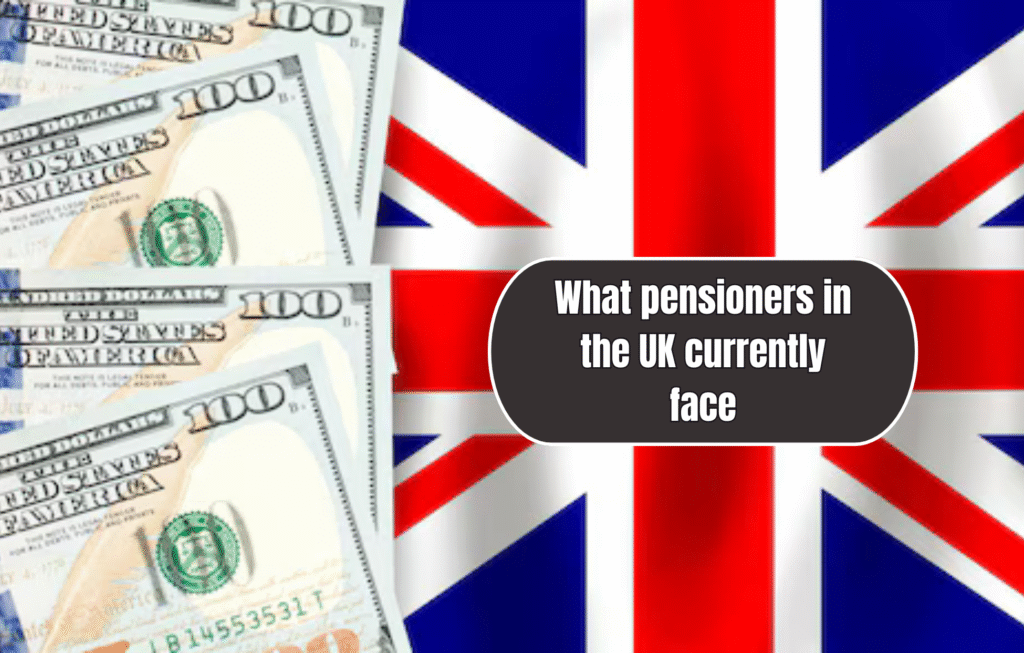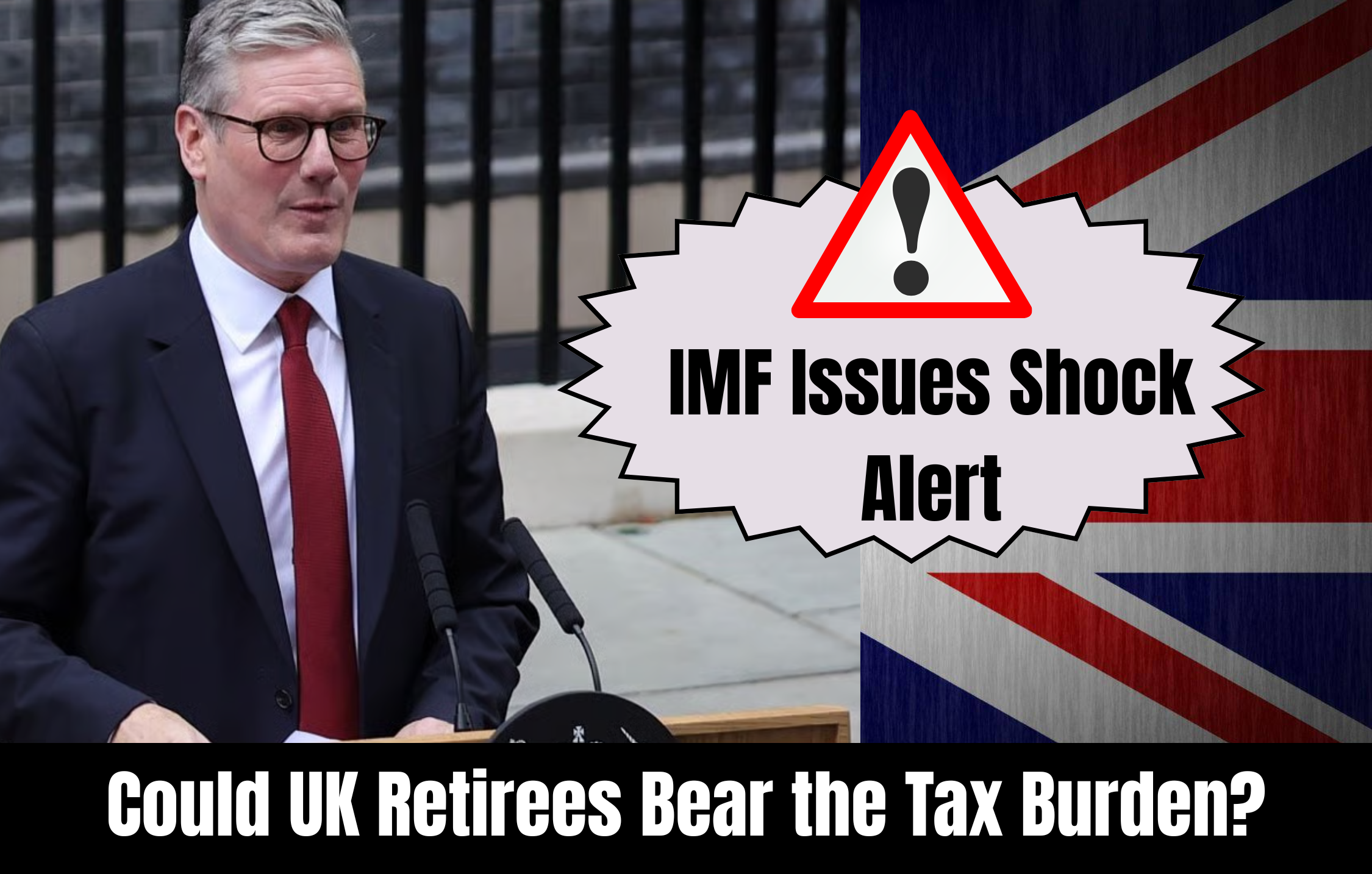1. What the IMF is warning the UK about
The IMF has in recent months issued several warnings and recommendations to the UK government (Rachel Reeves as Chancellor) concerning fiscal policy, taxes, public spending, pensions and the long‑term sustainability of the public finances.
Key points:
- In its UK “Article IV” report (annual health‑check) the IMF said that the UK’s spending plans appear optimistic, and the fiscal space (headroom) is quite limited.
- The IMF stressed that the UK is facing large spending pressures in areas such as health and pensions, due to an ageing population and rising costs; without further adjustment there is a risk to debt stability.
- The IMF recommends that the UK should consider raising taxes (or broadening tax bases) rather than further tax cuts, as well as revising some of the more generous commitments.
- One specific recommendation: the IMF advises that the state pension’s “triple‑lock” guarantee could be replaced by a simpler indexation (e.g., inflation only) to reduce cost pressures.
- It also flagged that services such as the NHS might need to consider user charges for higher‑income users, and that benefits could be more means‑tested, to help control spending.
- The IMF has warned that the UK should “stay the course” on its fiscal rules (balanced day‑to‑day spending by ~2029‑30) and if things go off track, tax rises or spending cuts may follow.
In short: the IMF is signalling that the UK cannot simply maintain current spending promises + tax freezes + generous indexing indefinitely without adjustments.
2. What pensioners in the UK currently face

Here are the major trends and pressures that are relevant to pensioners:
a) Taxation and “fiscal drag”
- Because many tax thresholds (personal allowance, higher‑rate threshold, etc) have been frozen for several years, rising pension incomes or savings interest mean more pensioners are being pulled into paying income tax (or paying more). For example, more than 1 million pensioners are now paying income tax at the 40 % rate.
- While the state pension may increase (via the “triple lock”), if the personal allowance remains fixed and savings interest/small pensions rise, pensioners may end up paying more tax without necessarily feeling a big benefit. The “fiscal drag” effect means increases push income over tax thresholds.
b) The “Triple Lock” on the State Pension
- The Triple Lock is the system by which the full new State Pension (and basic State Pension) increases by whichever is highest of: inflation, average earnings growth, or 2.5 %.
- While this guarantee has been popular, the IMF has flagged it as a cost pressure because earnings growth can be volatile and may make pension indexing more generous than purely inflation‑linking would be.
- If the triple lock is maintained but tax thresholds remain frozen, pensioners may see increases in pension income but also increases in tax liabilities or losing other benefits.
c) Rising costs of living, health & care
- Pensioners face higher risks from inflation (especially energy, utilities, food) which erode purchasing power. The UK is forecast by the IMF to have among the highest inflation in the major advanced economies in coming years.
- Health, social care and other age‑related public spending are rising, meaning the government’s choices around how to fund these will matter for pensioners (either via taxes, contributions, means‑testing or charges).
d) Inheritance tax, improvements & savings
- Some reports highlight that pension savings, pension pot drawdowns and inheritance tax are increasingly relevant for older households. For example, as pensions grow, or as individuals withdraw more to avoid future tax burdens, behaviours change.
So, pensioners are not exempt from the broader fiscal pressures; indeed some trends suggest they may face more tax or reduced benefit generosity unless adjustments are made.
3. How the IMF’s warnings tie into pensioner risks

Putting together the IMF’s warnings and the pensioner context gives the following possible risks or “pain points” for pensioners:
Risk 1: Tax increases or threshold changes
- If the government follows IMF advice, it may raise taxes (e.g., income tax, capital gains, inheritance tax, VAT, broadening tax bases). Pensioners with taxable income (savings interest, pensions, dividends) may be exposed.
- Tax thresholds being frozen amounts to a “silent” tax increase over time (because more people move into tax liability). Pensioners are already experiencing this.
- The IMF’s call for broader tax bases (such as property, wealth, estates) may implicate pensioners with significant savings, property wealth or inherited wealth.
Risk 2: Changes to pension indexing / benefit guarantees
- If the triple lock on the state pension is replaced by, say, inflation‑only or earnings link with lower floor, then pension increases may be smaller in future, reducing real income growth for pensioners.
- If benefits become more means‑tested, or if older people are required to pay more for public services (e.g., health, care) — as the IMF suggests for higher earners — then pensioners who are wealthier or have higher incomes may face higher charges or reduced benefits.
Risk 3: Service reductions / increased charges
- The IMF suggests that to keep spending sustainable, services may need to be prioritised or scaled back. For pensioners, this could mean increased charges for NHS, reduced subsidies/cost support (e.g., prescriptions, care), or higher out‑of‑pocket costs.
- Even if not directly targeted at pensioners, rising costs of living, inflation and stagnating income growth can exacerbate the burden for older households who have fixed incomes.
Risk 4: Behavioural/Planning consequences
- Anticipating tax/benefit changes, pensioners may alter behaviour: withdrawing pension pots earlier, changing savings vehicles (ISAs vs taxable savings), shifting investment strategies. The increased complexity and risk of unintended tax burdens rises. For example, pensioners withdrawing more from pension pots due to inheritance tax concerns.
In other words: pensioners are not automatically going to pay more taxes just because they are pensioners, but under current trajectories they face higher liabilities (tax or service costs), lesser indexing of benefits, and greater exposure to policy changes.
4. Latest updates specific to pensioners
- A significant tax burden is looming for UK pensioners with two major changes by April 2027: (i) the state pension increase (forecast ~4.7% in April 2026) could push many pensioners above the personal allowance, triggering income tax; (ii) new rules may bring pension pots into inheritance tax net (up to 40%) on death.
- The IMF’s July 2025 UK report specifically said that pension costs, health and ageing population will drive spending up to “about 8% of GDP by 2050” in the UK, compared to ~5.5% in other advanced economies — implying a large future fiscal gap.
- The IMF also warned that the UK’s “little fiscal headroom” means the government may have to raise taxes or cut benefits/spending sooner rather than later.
- Pensioners are already feeling tax pressure: more than 1 million pensioners now pay income tax above the 40% threshold.
- On inflation: the UK is forecast to have the highest inflation among advanced economies in 2025 and 2026 according to the IMF. Higher inflation erodes pensions’ real value if indexing does not keep pace.
So, the “shock warning” in the title refers to the IMF’s very clear message that the status quo is not sustainable — and that pensioners, along with other groups, may be affected by tax or benefit/service changes.
5. What this could mean for UK pensioners — scenarios and examples

To make it concrete: what might a pensioner face, and what should they consider?
Scenario A: Income tax hits
Suppose a pensioner receives the full new State Pension (for 2025/26 the rate is around £11,973 per year) and also has savings interest or a private pension drawdown such that total taxable income goes above the personal allowance (currently £12,570) or even into the higher‑rate band. Because thresholds are frozen, even modest increases in pension/savings may push someone into tax. If the state pension increases by ~4–5% in April 2026, someone who was just below the allowance may cross it and suddenly pay 20% tax on the excess.
For pensioners who already pay tax, if the allowance remains fixed and pensions/savings rise, their tax burden may increase. They may not feel “richer” in real terms if inflation is high.
Scenario B: Benefit indexation reduced
If the triple lock is replaced by inflation‑only indexing, then future state pension increases may be lower than would have been under triple lock. For pensioners relying on that income, this means slower growth of pension compared to wages (or compared to inflation if inflation > earnings). Over many years this can reduce real purchasing power.
Scenario C: Charges/means‑testing and higher service costs
If the government introduces more means‑testing or charges for health / social care, then pensioners with higher incomes or wealth may see increased out‑of‑pocket costs. For example, prescription/optical/dental charges could rise for those above a certain income. Combined with high inflation in consumer goods, this will strain fixed‑income pensioners.
Scenario D: Estate/inheritance tax exposure
Pensioners (or soon‑to‑be pensioners) with large pension pots or savings may face increased tax on death. One article pointed to pensioners withdrawing more from pension pots (to avoid future tax obligations) in response to policy change risk.
Implications for planning
- Review total income (state pension + private pensions + savings interest + dividends) and how tax thresholds may affect them in future.
- Consider tax‑efficient savings vehicles (ISAs, pensions) and the effect of withdrawals.
- Stay alert to government announcements about the triple lock, means‑testing, charges for public services or tax base changes.
- Consider inflation risk: even if nominal pension income rises, if indexing policy weakens, real income may fall.
- Estate planning matters: inheritance tax exposure may increase; seek financial advice.
6. What the government’s position appears to be & political factors
- The UK government (Labour, under Rachel Reeves) has pledged not to raise taxes on working people (workers’ income tax, NI) but the IMF says this may be unrealistic without other adjustments.
- The triple lock remains politically popular and has strong support among pensioners; any move to scrap or weaken it will be politically contentious.
- The government appears to emphasise growth, investment and supporting households, but the IMF says growth prospects are weak and fiscal buffers small — meaning tough choices are likely.
- The timing matters: with an upcoming budget, an ageing electorate, pressure on public services and high inflation, pensioners are a politically significant group. Changes affecting them will be scrutinised and may be phased.
7. My assessment: will pensioners “pay the price”?
In short: pensioners are likely to face more exposure to tax, lower growth in benefits, and higher service costs than they have in recent decades — but that doesn’t necessarily mean a sudden “tax hike just on pensioners.” It means relative vulnerabilities increase. Some pensioners will be more affected than others.
Key points:
- Pensioners with modest means, relying mainly on the state pension + minimal savings, may be less exposed to immediate tax rises (though inflation still hurts real income).
- Pensioners with higher incomes (savings, private pensions, property wealth) may see more tax exposure, higher charges, or slower benefit growth.
- The triple lock remains for now — so immediate reduction is not guaranteed — but suggestions of replacement or modification mean future increases may not be as generous.
- The “higher taxes” part of the title is real: the IMF is signalling tax rises or base broadening are very likely; pensioners are part of the demographic affected by those broader tax decisions.
- The bigger issue is long‑term sustainability: given demographic change and spending pressures, pensioners are among the groups who will need to adjust.
8. What pensioners and those nearing retirement should watch out for
Checklist of signals and actions:
- Monitor announcements around the triple lock on the state pension.
- Keep track of changes to tax allowances, savings interest taxation, and dividend tax.
- Check policy on NHS/social care charges or means‐testing.
- Review savings/income mix to avoid unnecessary tax burdens.
- Factor inflation into your planning — even indexed pensions may lose real value.
- Consider estate/inheritance tax planning early.
- Stay informed about budget announcements and long‑term reforms.
9. Conclusion
The IMF has issued a clear warning to the UK: the combination of an ageing population, rising pension/health/spending costs, high debt and limited fiscal headroom means that maintaining generous indexing, tax freezes and benefit levels may not be sustainable. For pensioners, this means:
- Increased possibility of tax rises or tax thresholds not rising, meaning more tax paid.
- Possible weakening of benefit increases if the triple lock is altered.
- Higher risk of charges or means‑testing for key services like health or care.
- Greater need for personal financial planning to maintain retirement security.
It does not mean pensioners will automatically face some dramatic one‑off tax on pensions — but it does mean they are among the groups most exposed to the types of long-term fiscal adjustments the UK may be forced to make.
FAQs
1. What is the IMF warning the UK about?
The IMF warns that UK public spending, especially on pensions and health, is unsustainable without tax rises or cuts due to high debt and an ageing population.
2. Why are pensioners being mentioned in these warnings?
Pension costs are a major pressure on public finances. The IMF sees current policies, like the triple lock, as too generous to maintain without fiscal risks.
3. What is the “triple lock” on pensions?
It guarantees state pensions rise by the highest of inflation, average earnings, or 2.5%. It’s costly and may be revised to control spending.
